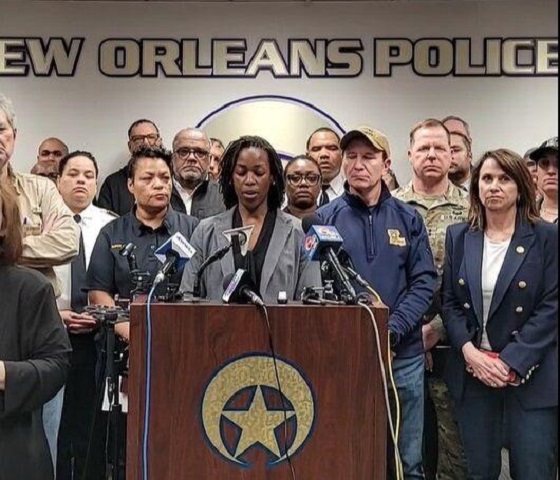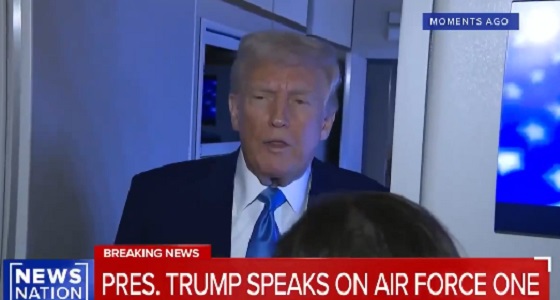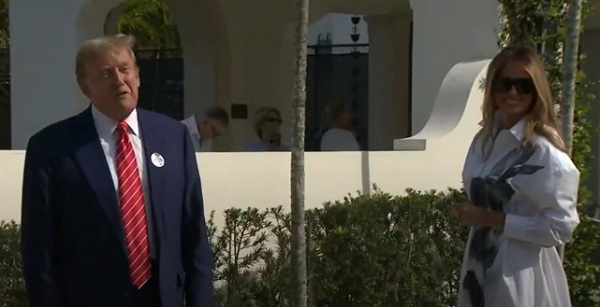From The Center Square
By Steve Wilson
Sugar Bowl playoff game delayed to Thursday due to ‘terrorist incident’
The FBI has identified the driver of a truck that plowed into a crowd of people celebrating New Year’s on Bourbon Street early Wednesday, killing at least 10 people and injuring 35.
Shamsud-Din Jabbar, 42, a U.S. citizen and U.S. Army veteran from Houston, rented the F-150 Lightning truck, the FBI said. Alethea Duncan, an assistant special agent in charge of the FBI’s New Orleans field office, said the agency doesn’t believe he acted alone.
The law enforcement agency said in a news release that he had improvised explosive devices that were found in both the truck and two in different locations in the French Quarter, body armor and an ISIS flag hanging from the tailgate.
The FBI said it’s investigating whether Jabbar acted alone or had accomplices and has closed Bourbon Street, treating it as an active crime scene.
Wednesday night’s Sugar Bowl, a College Football Playoff semifinal pitting Georgia and Notre Dame, was postponed until Thursday, the bowl game said. A kickoff time, originally 8:45 p.m. Eastern on Wednesday, did not accompany the announcement.
The Caesar’s Superdome is in the Central Business District, about 20 blocks from the crime scene. It was also the site of the first Super Bowl after 9/11.
Jabbar drove into a group of revelers at 3:17 a.m. and got out of the truck, exchanging gunfire with New Orleans Police Department officers, injuring two of them, before Jabbar succumbed from his wounds, lawmen say.
New Orleans Police Superintendent Anne Kirkpatrick, the city’s police chief, said on Wednesday at a news conference that three officers engaged Jabbar with gunfire.
New Orleans Mayor LaToya Cantrell said at a news briefing in New Orleans despite their injuries, the officers shot by Jabbar were doing well.
She also said there were malfunctions with some of the retractable bollards, the devices which prevent vehicles from accessing streets like Bourbon Street when open to only pedestrians.
She also said the bollards were to be repaired for the upcoming Super Bowl, which will be played in New Orleans on Feb. 9.
The FBI is directing those with tips for law enforcement, especially those who had interactions with Jabbar in the past 72 hours, to an FBI tip line website or via phone at 1-800-CALL-FBI.
“It’s all hands on deck, if you saw something, say something,” U.S. Rep. Troy Carter, D-La., said at the news conference. He also said the delay of the game was justified for safety reasons.
Louisiana Gov. Jeff Landry said at a Wednesday news briefing that the city and state had been working around the clock to secure the city after he got the call from Cantrell at 3:45 a.m.
“We have made public safety a priority from day one,” Landry said. “We intend to be transparent to assessing any defects that might have existed in the system and make sure any mistakes are corrected. This city will have the resources necessary to protect our citizens and our guests. We’ve got an active investigation and we’re also working on enhanced security.”
The first-term Republican governor also said he’s issued a more expansive emergency declaration and mobilized a military police company of 100 guardsmen from the Louisiana National Guard to assist the New Orleans Police Department, the FBI and other agencies with investigating the incident.
Louisiana Attorney General Liz Murrill said “we will bring them to justice” and that she’d provide resources to both the city and the FBI to help with the investigation.
Kirkpatrick said the city has a plan and “we’re going to get these people. Very pleased that we will be back to having a wonderful game tomorrow night.”















